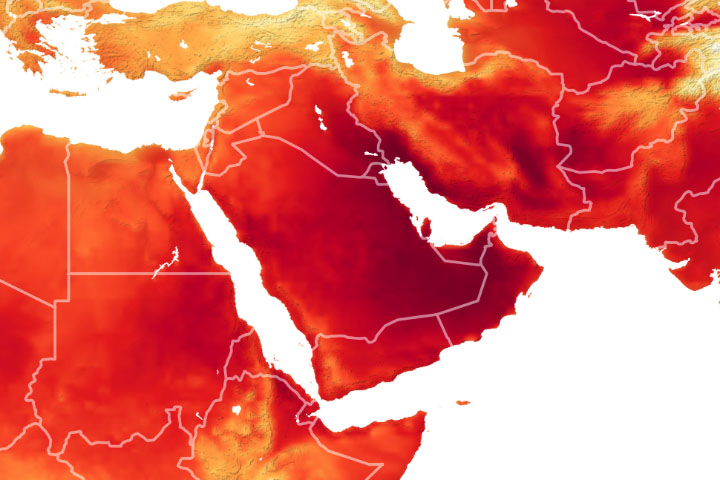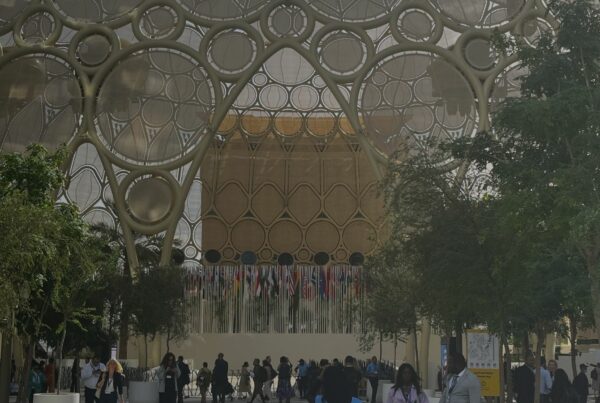The Intergovernmental Panel on Climate Change (IPCC) has published its final report in the sixth assessment cycle, Synthesis Report of the Sixth Assessment Report, which assesses the impacts of climate change from regional and global levels.
Scientists at the UN body have warned that immediate action is necessary to mitigate the effects of climate change globally.
This article looks back specifically at implications for the Middle East from findings by Working Group 4. The IPCC is divided into three Working Groups and a Task Force. Working Group II deals with Climate Change Impacts, Adaptation and Vulnerability.
The impacts of climate change in the Middle East region are already apparent from rising temperatures, decreased rainfall, and increasing dust storms. However, without swift, immediate action, the future looks even bleaker, with rising temperatures, droughts, and water scarcity posing significant challenges. The report emphasizes that the hard physical limits to adaptation exist, and if action is not taken, the situation will only worsen. The most concerning findings from the report are:
- Heat and humidity that exceeds limits of human survivability. The Middle East is already experiencing an increase in temperatures and decreased rainfall, leading to a higher risk of heat-related deaths. The report states that even under moderate emissions, wet-bulb temperatures will likely reach human survivability thresholds in Middle East countries. The report warns that there are physical limits to adaptation, and without large emission cuts, people in the region will face dehydration, kidney function problems, fatigue, dizziness, confusion, reduced brain function, loss of concentration, and discomfort.
- Worsening, frequent, and intense dust storms. Sand and dust storms have already become more frequent and intense in Iran and other Persian Gulf countries. With further warming, these storms will become worse, leading to increased water scarcity and drought in the region. Groundwater depletion is already occurring at high rates in the Arabian aquifer, leading to the desertification of oases and irrigation lands across the Mesopotamian Arabian Desert.
- Serious threats to food security. Water scarcity will particularly affect Saudi Arabia, which could undermine its food security. Climate change will decrease fish catches in Bahrain and Iran, with consequences for food security and income generation. Global warming already threatens important fish species on the coasts of Saudi Arabia, Qatar, and the United Arab Emirates, which are at high risk of local extinction.
- Sea level rise threat to agriculture and industry. The report warns that as sea levels rise, more land will be submerged, flooded regularly, eroded, or become unsuitable for agriculture due to saltwater intrusion. The economic costs of sea level rise for Gulf countries will be high, particularly for infrastructure and industries that are concentrated in coastal areas.
- Effects of extreme events elsewhere, will impact Middle East countries. will be hit by the effects of climatic changes that happen within its border, it will also be deeply affected by the consequences of changes that happen elsewhere. Climate change will hit international supply chains, markets, finance, and trade, reducing the availability of goods and increasing their price, as well as damaging markets for exports. Economic shocks caused by climate change, including reduced agricultural yields, damage to critical infrastructure, and commodity price rises, could lead to financial instability. High levels of warming could cause a global GDP decline of 10-23% by the end of the century, compared to a world without warming. Major economies could see larger economic declines because of climate change, with estimated GDP losses by the end of the century of up to 42% in China and 92% in India, if emissions are high.
The report makes it clear that immediate, large emission cuts are necessary to mitigate the effects of climate change. The Middle East region needs to work together to reduce emissions and invest in adaptation measures to minimize the risks posed by climate change.
With the UAE hosting COP28 this year, the Middle East has a unique opportunity to lead the way in reducing emissions and investing in renewable energy. Failure to act urgently on climate change will result in catastrophic consequences for the Middle East, with significant implications for the rest of the world.





